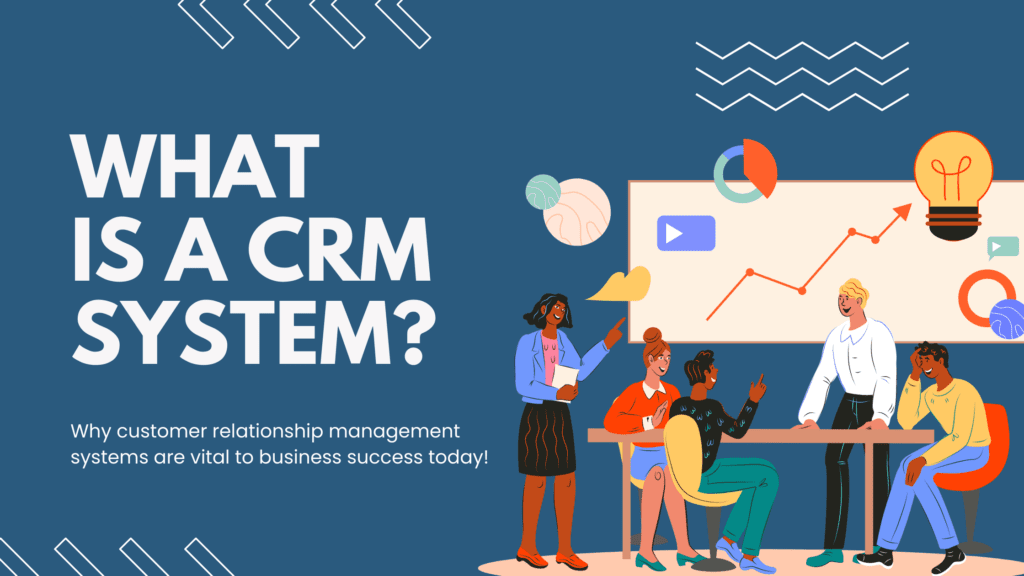Within dynamic business ecosystem, efficient customer relationship management is essential for success. Organizations are constantly looking for ways to enhance their productivity and enhance their interactions with customers. One of the key tools in achieving this aim is a comprehensive customer relationship management system. By taking advantage of the right features, organizations can streamline their processes, boost customer satisfaction, and finally foster growth.
The key to maximizing the benefits of a CRM lies in understanding its features. From automation tools that reduce manual tasks to data analysis tools that provide deeper insights into customer behavior, the ideal customer relationship management system can change how organizations manage their operations. In this write-up, we will explore the leading ten CRM features that can substantially boost your company effectiveness and enable you cultivate improved relationships with your customers. Whether you run a small startup or an long-standing enterprise, these features are vital for remaining competitive in the current market.
1. Optimized Contact Management
Successful contact management is a key element of any successful customer relationship management system. A well-maintained database allows businesses to easily retrieve and manage customer information, leading to improved communication and relationship-building. With optimized contact management, users can keep essential details such as names, contact numbers, email addresses, and communication records in one centralized place. This removes the need for scattered spreadsheets and provides a single source of truth for all customer data.
Advanced CRM systems offer features like labeling and grouping contacts, which make it easier to segment customers based on multiple criteria. This specific approach allows businesses to tailor their marketing efforts and communications according to specific customer groups. By utilizing these features, companies can enhance engagement and foster loyalty, as they are able to send personalized messages that appeal with each person's needs and preferences.
Furthermore, integrations with various tools and platforms can further improve contact management. Whether it’s syncing with email marketing software, accounting systems, or even social media, these integrations streamline the workflow and ensure that all customer interactions are captured and employed effectively. As a result, businesses can make wise decisions and enhance their customer strategies, ultimately increasing overall efficiency.
2. Automated Sales Processes Methods
Introducing automated sales sales techniques strategies is crucial for enhancing productivity in the marketplace. Using a powerful CRM tool, sales teams can streamline common tasks such as lead tracking, subsequent communications, and reporting. This not only reduce time consumption but guarantees that no sales opportunities slip through the cracks, allowing teams to dedicate their efforts to building relationships and closing deals.
A major advantage of automation is the uniformity it provides to sales activities. Automated systems can arrange calls, send emails, and manage follow-up reminders, making sure that clients receive timely messages. This trustworthy outreach supports the effective nurturing of leads and increases the chances of turning prospects into repeat customers. Additionally, by automating repetitive tasks, sales representatives can concentrate to more strategic tasks that directly impact revenue generation.
Additionally, including analytics into automated sales processes delivers crucial insights into performance indicators. Businesses can easily analyze the rate of conversion, recognize obstacles in the sales process, and make data-driven decisions to refine their plans. This capability enables teams to adjust swiftly to shifts in the market and customer preferences, thereby enhancing overall business efficiency and sales results.

Three. Advanced Data Analysis and Reporting Techniques
Sophisticated analytics and reporting techniques are vital customer relationship management features that allow businesses to make informed decisions based on data-driven insights. By utilizing the power of data collection, CRM systems can provide detailed information about customer interactions, sales trends, and market dynamics. This allows organizations to comprehend their customers more effectively, predict needs, and tailor their strategies to meet those needs.
With comprehensive reporting capabilities, businesses can track key performance indicators and evaluate the success of their marketing efforts. Customizable dashboards and reports enable users to represent data in insightful ways, making it simpler to identify patterns and opportunities for improvement. These insights not only help in measuring success but also inform future strategies for customer engagement and retention.
Moreover, predictive analytics, a subset of sophisticated analytics, enables organizations to forecast future trends and behaviors based on historical data. This forward-looking approach enables businesses to react to but also anticipate customer demands. By leveraging these insights, companies can enhance their customer relationship management system aspects, resulting in increased efficiency and ultimately, greater revenue growth.
Four. Enhanced Customer Interaction
Efficient communication is crucial for building strong relationships with customers, and a powerful customer relationship management system features tools that enable effortless interaction. With unified messaging systems, email services, and live chat options, businesses can interact with their customers in the moment, addressing inquiries and providing support quickly. This instant communication helps to foster trust and stimulates customer loyalty.
In addition, CRM systems often feature capabilities that enable tailored communication based on customer data and preferences. By tracking customer interactions and gathering information about their preferences and behavior, businesses can tailor their messages, ensuring that customers receive appropriate offers and information. This tailored approach not only enhances the customer experience but also increases the likelihood of loyal business.
Additionally, CRM systems can automate communication, allowing businesses to deliver targeted follow-ups, reminders, and promotional messages without manual effort. This automation ensures that no customer is neglected and that communications are on time and uniform. By enhancing communication processes, businesses can save hours and efforts while improving customer satisfaction, ultimately leading to better business efficiency.
